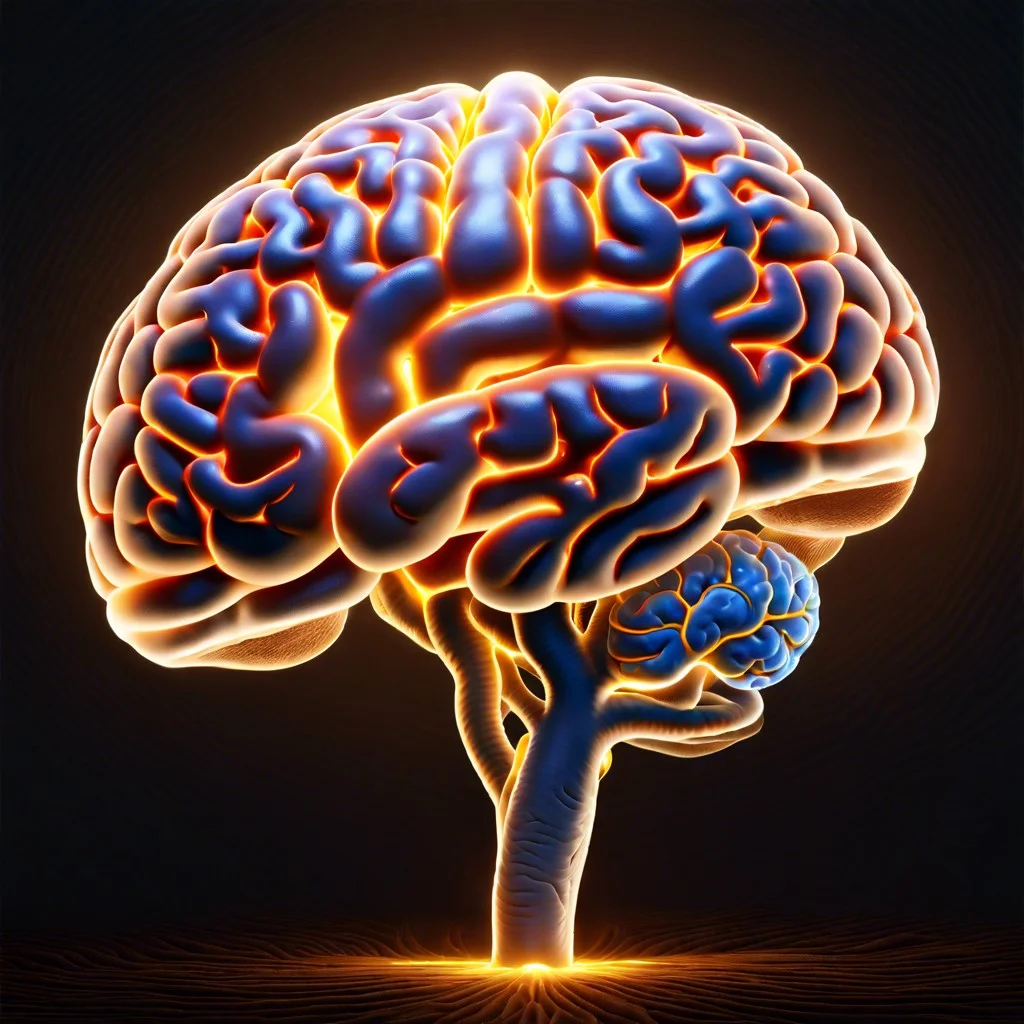Discover the physiological and potential cognitive impacts of pineal gland activation, shedding light on this small but fascinating part of the human brain.
Key takeaways:
- Pineal gland regulates sleep-wake cycles and seasonal functions.
- Pineal gland synthesizes and secretes melatonin, influencing circadian rhythms.
- Pineal gland is associated with mood, perception, insight, and intuition.
- Activation of pineal gland improves sleep quality and promotes relaxation.
- Pineal gland activation increases melatonin production and synchronizes circadian rhythms.
Overview of the Pineal Gland

Tucked deep within the brain, the pineal gland is a small, pinecone-shaped endocrine structure. It operates somewhat like a cosmic clock, overseeing sleep-wake cycles and seasonal functions. This gland secretes the hormone melatonin, which directly influences our circadian rhythms.
Light exposure controls melatonin production. When darkness falls, the pineal gland kicks into gear, pumping out melatonin to help the body ease into a state conducive to sleep. Conversely, as daylight emerges, melatonin levels drop, signaling the body to awaken and be alert.
Also intriguing is the gland’s role in synthesizing compounds that affect mood and perceptions. Research hints at its involvement in producing metabolites related to serotonin, a neurotransmitter associated with feelings of well-being.
Considered the ‘third eye’ in various spiritual traditions, the pineal gland is often associated with insight and intuition. While science hasn’t confirmed such roles, it does acknowledge the gland’s influence on our daily function and overall equilibrium.
What Is the Pineal Gland?
Situated at the center of the brain, this small, pinecone-shaped endocrine organ plays a pivotal role in regulating circadian rhythms—our internal body clock that governs sleep-wake cycles. Beyond its size, the pineal gland is a powerhouse, synthesizing and secreting melatonin, a hormone that signals to our body when it’s time to rest.
During daylight, melatonin levels are low, keeping us alert and awake. As darkness falls, they rise, promoting relaxation and sleepiness, prepping the body for sleep. This cyclical process hints at a profound connection to light exposure, with the gland receiving and responding to cues from the eyes regarding the time of day.
Interestingly, the pineal gland has long held a place in various philosophies and cultures, often associated with mysticism and spirituality. It’s been referred to as the “third eye,” a nod to its perceived role in intuitive insight and reflection.
While still shrouded in some mystery, its fundamental contributions to sleep patterns and mood regulation show the pineal gland as a critical component in maintaining our daily physiological and mental equilibrium.
Melatonin Production and Its Role
The pineal gland synthesizes and secretes melatonin, a hormone predominantly known for regulating sleep-wake cycles. As darkness falls, the gland becomes active, increasing melatonin production, which signals the body to prepare for sleep. This hormone is pivotal in establishing a consistent circadian rhythm, which in turn affects your overall sleep quality.
Beyond sleep, melatonin has antioxidant properties, protecting cells from free radical damage. Its production wanes with age and exposure to artificial light at night, which can disrupt sleep patterns.
Thus, the gland’s proper function is essential not just for sleep, but also for optimizing body rejuvenation and daily performance. Regular sleep schedules and reducing nighttime light exposure can help maintain its rhythm, further illustrating the intricate connection between lifestyle and internal well-being.
Pineal Gland Activation
When the pineal gland becomes activated, it results in an increase in the production of melatonin, a hormone that regulates sleep and wakefulness. This hormonal shift can influence circadian rhythms, thus potentially improving sleep quality and providing a sense of calm and relaxation.
Additionally, activation of the pineal gland has been hypothesized to heighten perceptual awareness and intuition, often described in the context of meditation practices. Individuals report a sense of clarity and connection, aligning with the philosophy that an active pineal gland contributes to a bridging between physical and metaphysical experiences.
Nourishment and lifestyle choices play vital roles in maintaining pineal gland health. Adequate exposure to natural light, a balanced diet rich in antioxidants, and practices that lower stress levels, such as yoga and mindfulness meditation, support the gland’s function.
However, it’s essential to approach the concept of pineal gland activation with a grounded understanding of the science behind it, as research continues to unfold the gland’s complexities and capabilities.
Impact On Melatonin Secretion
Activating the pineal gland can significantly influence the body’s sleep-wake cycle, primarily through its regulation of melatonin, a hormone that signals the body to prepare for sleep. Increased activity in the pineal gland can lead to greater melatonin production, particularly in response to darkness, which aids in synchronizing our circadian rhythms with the natural light-dark cycle.
As melatonin levels rise, individuals typically begin to feel more drowsy and ready for sleep. This response is an essential aspect of maintaining good sleep hygiene and overall health. Higher melatonin secretion can also have a calming effect, reducing symptoms of anxiety and promoting relaxation.
Conversely, disruptions to the pineal gland’s function—often due to exposure to artificial light at night or electromagnetic fields—can result in lower melatonin levels. This decrease can result in sleep disturbances, a disrupted circadian rhythm, and a host of sleep-related issues.
Therefore, a well-functioning, activated pineal gland plays a critical role in the regulation of sleep and, by extension, impacts one’s overall well-being.